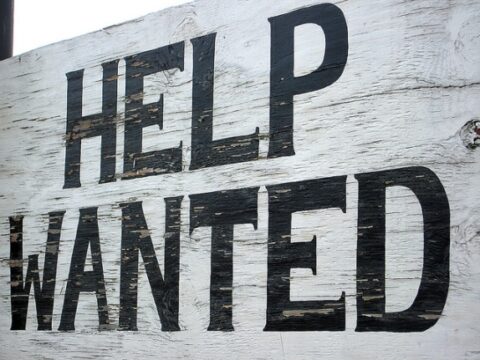Business & the Workforce

Michigan Pushes Plan to Welcome Immigrants and their Revitalizing Power to State
While some states pushed for punitive immigration measures over the last year—measures designed to drive immigrants away —others, like those in Michigan, were busy putting together a plan that welcomes immigrants and their revitalizing power to the state. This month, leaders in Michigan—including state Rep. Rashida Tlaib (D-Detroit) and U.S. Rep. Hansen Clarke (D-Detroit)—helped launch “Welcoming Michigan,” a statewide initiative that seeks to welcome immigrants and their entrepreneurial talents to Michigan. Read More

Administration Takes Step Toward More Entrepreneur-Friendly Immigration Policy
BY TEJAS SHAH*. While the U.S. economy continues to recover at a sluggish pace, the administration continues to emphasize immigration reform’s critical role in promoting innovation and entrepreneurship in the U.S. This week, Cecilia Munoz, the Domestic Policy Council Director at the White House, spoke at a forum hosted by The Hamilton Project of the Brookings Institution about the administration’s commitment to immigration reform and easing pathways for foreign investors in the United States. Sadly, however, talented and dynamic foreign entrepreneurs seeking authorization to direct, operate, manage, or work for their investment vehicles often face tedious barriers. Easing these barriers would benefit our economy and enhance our ability to out-compete other countries in the modern global economy. After all, with out foreign entrepreneurs, we wouldn’t have such U.S. companies as Yahoo, Google, and Intel. Read More

New Report Finds that Immigration Creates U.S. Jobs
Immigration creates jobs for native-born Americans. That is the fundamental finding of a new study from the American Enterprise Institute and the Partnership For A New American Economy, entitled Immigration and American Jobs. The study—authored by Madeline Zavodny, a professor of economics at Agnes Scott College—reinforces the findings of numerous other studies which have demonstrated that there is no correlation between immigration and unemployment. Specifically, Zavodny analyzes Census data with the aim of answering one pivotal question: “In states with more immigrants, are US natives more or less likely to have a job?” Zavodny focuses on two groups in particular: immigrants with advanced degrees, and immigrants of any skill level who are in the country on temporary visas. Read More

New Report Shows Immigrant Women Entrepreneurs Create Jobs and Contribute to Economy
Economists readily acknowledge the economic contributions of immigrant entrepreneurs to the U.S. After all, we wouldn’t have one-quarter of all public companies in the U.S.—companies like Google, Yahoo!, and Intel which employed 220,000 people and generated more than $500 billion in one year—without them. But lost in that acknowledgement are the contributions of immigrant women entrepreneurs who last year made up 40% (or 980,575) of all immigrant business owners in the U.S. This week, a new report, Our American Immigrant Entrepreneurs: The Women, takes a closer look at these women and examines the obstacles and pathways to establishing successful businesses—businesses that have created American jobs and generated millions in taxable revenue. Read More

American Innovation Takes on Broken U.S. Immigration System
In the past several days news reports have depicted good old American ingenuity taking on our broken and outdated immigration system. CNN ran a story last week from Georgia about a handful of educators who have taken matters into their own hands after the state’s Board of Regents passed an extreme law in 2010 banning undocumented immigrant children from attending Georgia’s top public colleges and universities—banned despite the fact that these kids pay three times the rate of other in-state students due to their immigration status. Read More

Report Debunks Myth that High-Skilled Immigrants Steal American Jobs
It is an article of faith among anti-immigrant activists that immigration results in fewer jobs and lower wages for native-born workers. For instance, the Federation for American Immigration Reform (FAIR) recently released a report in which it claims that native-born workers with science and engineering (S&E) degrees are being driven en masse into non-S&E occupations due to competition from foreign-born workers willing to accept lower wages. However, in its rush to blame immigrants, FAIR misses a highly salient detail: a growing number of jobs in non-S&E occupations require or reward S&E skills. In other words, native-born workers with S&E degrees aren’t being driven out of S&E occupations by immigrants; they are being lured into non-S&E occupations where their S&E skills are in high demand and command higher salaries. Read More

Even Facebook Feels Brunt of Broken U.S. Immigration Policy
You know things are bad when a company as popular as Facebook has problems finding qualified talent. In a recent interview, Facebook’s chief operating officer, Sheryl Sandberg, remarked that our outdated immigration policy is a big reason Silicon Valley tech companies are fighting each other for highly skilled workers. Current immigration policy limits high-skilled worker visas (H-1B) to only 65,000 per year—a number that hardly meets demand. Even technology giant Microsoft recently testified before Congress that current immigration policies make finding talent a serious challenge. Until lawmakers revamp our outdated immigration system, technology companies like Facebook and Microsoft will continue to lose out on the foreign talent they need to stay ahead of the curve. Read More

A Small Step Toward Reform: Bipartisan Bill Seeks to Raise Per Country Immigration Caps
An immigration bill introduced by Congressmen Lamar Smith and Jason Chaffetz and supported by Democrats may actually have a chance at passing in Congress. Scheduled for a mark up this week, the bill (H.R. 3012) would make small but significant changes to the way green cards are distributed by eliminating per country numerical limits on employment-based green cards and raising the limits on family-based green cards which go to immigrants from each country. Read More

Some Alabama Businesses Having Trouble Replacing Immigrant Workers
Just two weeks after Alabama’s extreme immigration law (HB 56) went into effect, many are reporting an exodus of immigrants, Latinos and their families from the state. While HB 56 supporters cheer the exodus as a victory, many Alabama businesses say they are left without an adequate workforce. Despite assurances from Governor Bentley that U.S. citizens will gladly take those jobs, Alabama farmers, meat processors and housing contractors are finding that U.S. citizen or legal workers are either not willing or able to take those jobs—leaving fruit to rot on the vine and home reconstructions projects unfinished. Not only will this hurt Alabama business in the short term, economists say, but will shrink the state’s economy and productivity over time. Read More

Dayton, Ohio Passes Plan to Revitalize Economy through Immigrant Integration
Shortly after Alabama began implementing their anti-immigration law (HB 56), Dayton, Ohio passed legislation that welcomes and integrates immigrants with the hope that they will revitalize their slowing economy. Faced with a declining population, Dayton’s City Commission voted unanimously last week to adopt the Welcome Dayton Plan—a plan that is tapping into the very economic stimulus that Alabama is driving out. Read More
Make a contribution
Make a direct impact on the lives of immigrants.
